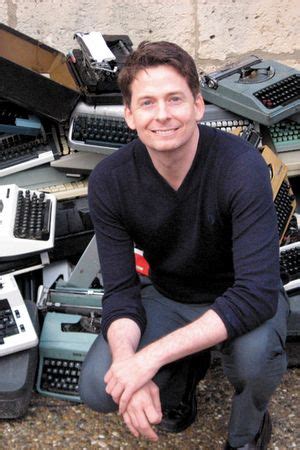A Quote by Orhan Pamuk
I am a highly disciplined person. I get up at seven every morning and, still in my pajamas, sit down at my desk where my checkered ring binders and my fountain pen are ready for use. I try to write two pages every day.
Related Quotes
I know there are other writers who sit down religiously every morning, they take their espresso, they put a clean sheet of paper there and they sit looking at that paper until they've finished or covered at least a number of those pages. No, I'm not like that. I have to be ready. It has to gestate it for quite a while and then it's ready to burst forth.
I try to write every day, preferably first thing in the morning. Of course, there are days when something happens to interfere with this ideal schedule. Then I try to find time later in the day. I usually work at home, but sometimes, for a change I'll go to a library or a cafe. And I like to read poetry before I sit down to write.
If you're going to be a writer you should sit down and write in the morning, and keep it up all day, every day. Charles Bukowski, no matter how drunk he got the night before or no matter how hungover he was, the next morning he was at his typewriter. Every morning. Holidays, too. He'd have a bottle of whiskey with him to wake up with, and that's what he believed. That's the way you became a writer: by writing. When you weren't writing, you weren't a writer.
First, consider the pen you write with. It should be a fast-writing pen because your thoughts are always much faster than your hand. You don't want to slow up your hand even more with a slow pen. A ballpoint, a pencil, a felt tip, for sure, are slow. Go to a stationery store and see what feels good to you. Try out different kinds. Don't get too fancy and expensive. I mostly use a cheap Sheaffer fountain pen, about $1.95.... You want to be able to feel the connection and texture of the pen on paper.






































